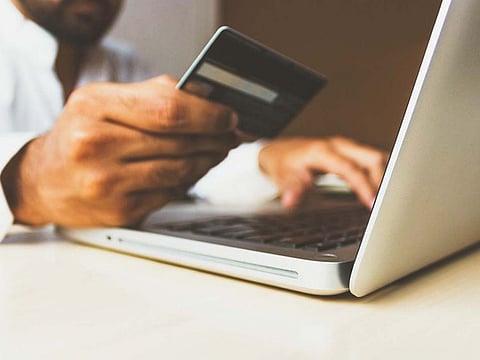Deep in credit card dues? Here are nine tactics to break bad debt cycles
After paying off high-interest credit debt, evaluate your relationship with the plastic

While credit cards aren't ideal for everyone, they can aid your credit journey if used responsibly. When reconciling with credit cards, you need a personalised stay-out-of-debt plan.
Here are nine strategies to consider which can be used as tactics to break credit card debt cycles.
1. Reflect on spending habits
Maybe you ditched debt, but history can repeat if you don't unpack the motivations that contributed to it. A get-out-of-debt plan that works in the short term may not be sustainable over the long term if it doesn't align with your priorities, according to Julia Kramer, a US-based financial behaviour and leadership consultant.
Kramer suggested tracking transactions dating back a week or more. Add a plus sign next to those purchases you're willing to repeat and a minus sign next to those you're not. For obligatory purchases like fuel and groceries, add an equal sign. Note the date, the item purchased, the amount and the need the purchase met.
2. Employ tricks to prevent spending
Those frequent coffees or meals out with friends may be more about the personal connection experienced, or something else, as opposed to the gratification provided by the item, according to Kramer.
This information is key to identifying areas in your budget that are negotiable. For example, you may be more willing to choose budget-friendly food in order to keep a need rather than a want, Kramer added.
If your spending strays upon experiencing feelings like anxiousness or boredom, make a plan for those occasions. It might mean budgeting extra money or employing tricks like using a credit card lock feature to prevent spending.
3. Use cash for certain categories
If you want to reel in spending on categories like dining out or entertainment, for example, set aside physical cash to stay within budget.
Money in hand can lead to more mindful spending, according to Kramer. Having cash on hand not only reduces financial stress and anxiety, it also ensures that you'll avoid unnecessary late fees because you paid the bill on time.
4. Track cash flow, set up spending alerts
Create a tracking system that works for you. Setting up spending alerts on a credit card account can notify you if purchases exceed a certain amount. Tracking spending with a spreadsheet, bullet journal or budgeting app, for instance, can also help with mental accounting.
“I would not open up credit cards if you do not have a system in place where you track spending every month,” Kramer added. “It has to be something that appeals to you that you know you're going to do.
For Bell, a cash envelope tracking system helps her manage spending in different categories, including her credit card bill payment.
"When you look in a cash envelope and you see you only have a bit of money left, it's very clear that once that money runs out there's nothing else I can do," she says.
5. Use credit cards for planned purchases only
Ease your way back into credit cards with small planned purchases, like a subscription service payment.
After paying off debt, Bell only uses credit cards for in-budget purchases, and she pays them off in full each month to avoid interest charges. Initially, she left her credit card at home to avoid relying on it.
6. Have an emergency fund to fall back on
An emergency fund of even $500 (about Dh2,000) for a car or home repair may keep debt off of your credit cards.
Start small and aim, eventually, to cast a wider safety net over time – ideally, three to six months of living expenses stowed in a high-yield savings account.
If you previously got used to budgeting a certain amount each month to pay creditors, keep that momentum going, but direct funds toward savings instead.
7. Don't store credit card info on sites or apps
Convenient payment options can sometimes lead to mindless spending, so be sure to be on a lookout for such slippery slopes.
By entering payment information into forms for every online purchase, you'll have more time to think through a purchase.
8. Get advise on staying out of debt
A trusted partner can offer input on a purchase or a stay-out-of-debt plan. An accountability partner can be a sounding board that lets you listen out loud to your own justifications for financial decisions.
Simply put, an accountability partner is someone who agrees to help cheer you on and make sure that you’re keeping on track with your goals. Everyone’s budget is different because every person is different. But most often we all need a accountability partner.
9. Update your debt strategy
As motivations and priorities change, your stay-out-of-debt plan should follow. Continue revisiting credit card statements to identify the needs that are being met by purchases and which are most important.
If in this process you continue having frequent run-ins with debt, consider closing credit card accounts even if it can negatively impact credit scores.
“A big thing about this is knowing yourself and knowing what your challenge areas are and finding ways that work around them,” Bell said. “Five years from now it might look different, but for right now that's what works.”
Sign up for the Daily Briefing
Get the latest news and updates straight to your inbox



